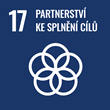Informace o projektu
Struktura, biologie a medicínský potenciál ultra-krátké mimobuněčné DNA v krevní plasmě
- Kód projektu
- GF22-04242L
- Období řešení
- 10/2022 - 9/2025
- Investor / Programový rámec / typ projektu
-
Grantová agentura ČR
- LA granty
- Partnerská agentura (Německo)
- Fakulta / Pracoviště MU
- Středoevropský technologický institut
- Spolupracující organizace
-
Center for Molecular Medicine Cologne, University Hospital Cologne, University of Cologne
Fragments of DNA are constantly being released into the human blood circulation following cell death and by active secretion. The fragmentation of cell-free DNA (cfDNA) in blood plasma reflects its tissue of origin and mechanisms of release into the circulation. We established a novel method that enabled us to capture single-stranded ultra-short cfDNA (US cfDNA, ~50 nt) from blood plasma. We found that US cfDNA has its origin upstream of accessible transcription start sites. We observed that these sites are only enriched in US cfDNA when they contain the potential to adopt G-quadruplex and/or i-motif structures. Importantly, our data revealed that the US cfDNA fragments in healthy individuals are significantly more enriched in G4 sequences relative to cfDNA in cancer patients suggesting that US cfDNA have a specific role in cancer physiology. Although relationships of US cfDNA to disease is unknown, exploring alternative structural arrangements contained in ssDNA could improve our understanding of cfDNA biology leading to further opportunities to develop novel diagnostic strategies.
Cíle udržitelného rozvoje
Masarykova univerzita se hlásí k cílům udržitelného rozvoje OSN, jejichž záměrem je do roku 2030 zlepšit podmínky a kvalitu života na naší planetě.
Publikace
Počet publikací: 3
2025
-
Hyperpolarized NMR Reveals Low-Populated Folding Intermediates in DNA
JOURNAL OF THE AMERICAN CHEMICAL SOCIETY, rok: 2025, ročník: 147, vydání: 50, DOI
-
In-cell NMR spectroscopy of nucleic acids: Basic concepts, practical aspects, and applications
Progress in Nuclear Magnetic Resonance Spectroscopy, rok: 2025, ročník: 148-149, vydání: August-October, DOI
2024
-
RNA G-quadruplex formation in biologically important transcribed regions: can two-tetrad intramolecular RNA quadruplexes be formed?
Nucleic Acids Research, rok: 2024, ročník: 52, vydání: 21, DOI
